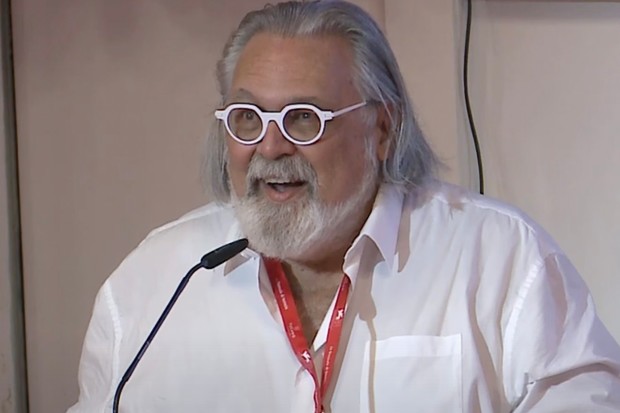Our Terms & Conditions | Our Privacy Policy
Philippe Reynaert • Senior consultant, Xanadu
“The public authorities’ responsibility today is to ensure the independence not of producers, but of productions”
10/09/2024 – VENICE 2024: The expert unpacks key insights from the “A Reflection About the Future Purpose for Film and Audiovisual Policies” panel, held during the Venice Production Bridge
Cineuropa caught up with Philippe Reynaert, senior consultant at Brussels-based Xanadu, after the end of this year’s Venice Film Festival (28 August-7 September). We asked him a few questions about the panel discussion titled “Why Are They Doing Like This? Why Will They Do Like This in 2030? A Reflection About the Future Purpose for Film and Audiovisual Policies,” held at Hotel Excelsior’s Spazio Incontri on 1 September during the Venice Production Bridge (29 August-3 September). The talk covered various topics, including public funding, the influence of streaming platforms, and the challenges inherent in balancing cultural and economic objectives.
(The article continues below – Commercial information)
Cineuropa: You hosted a conference at the Venice Production Bridge, which began with an address by Tomas Eskilsson, of Film i Väst. Could you share some of its main points?
Philippe Reynaert: I have had the chance to work for over four years on a monumental and unprecedented study, initiated by Tomas and titled “Public Film Funds at a Crossroads”. More than 1,000 interviews were conducted across Europe to lay the groundwork for this study as we emerged from the health crisis, which dramatically accelerated the rise of platforms – they became dominant in just a few months. The second wave of the study examined the evolution of these new issues, and we are now in the third and final phase, the most challenging one, which involves proposing solutions for the future. The results of this third study, based on in-depth interviews with public fund managers, will be presented in Berlin in February. However, with Tomas, we wanted to take advantage of this incredible gathering at the Venice Production Bridge to test some of our preliminary conclusions with a panel of producers.
What were the main points shared by the panellists in the ensuing discussion?
We chose to highlight the north/south divide in Europe by selecting a diverse panel: Denmark’s Louise Vesth [of Zentropa] and Lithuania’s Marija Razguté [M-Films] alongside Italy’s Carlo Cresto Dina [Tempesta] and Marta Donzelli [Vivo Film]. However, it quickly became apparent that the significant differences in public funding systems – broadly divided between a Scandinavian model centred on viewers/citizens and a French model driven by industry development – were not as prominent when considering the state of production companies. There was general agreement among the panellists that while competitiveness is critical for their survival, none of them is looking to the future by sacrificing the diversity of productions. They are particularly concerned about the potential homogenisation of content and language that seems to be driven by the dominance of streaming platforms.
But is platform neutrality an achievable goal?
It is certainly an important objective for everyone, but our panel was very realistic in addressing this issue. They are aware that fighting against SVoD is already a battle of the past. Instead, they believe it is necessary to build on the new dynamics created by the investment obligations that Europe has imposed on these platforms. They sent a clear message to national and regional authorities: stop focusing on whether producers are “independent”. The globalisation of the market is here. The public authorities’ responsibility today is to ensure the independence not of producers, but of productions! In short, the first criterion for granting funding should be: can this project be funded by a platform? If so, don’t spend public money. If not, then let’s provide substantial support to develop works that will continue to ensure cultural diversity.
And what was said about the duality between selective and automatic financing?
This particular panel was strongly in favour of maintaining selective funding. However, it is worth noting that more and more producers are pushing for – or, in the case of Germany, successfully achieving – a shift to automatic funding, which offers them greater visibility for their company’s development strategy. Personally, and this will be one of the main conclusions of the third wave of our study, I believe that there is no single solution to these complex issues. The best aspects of different systems must be used wisely.
It seems to be increasingly difficult to balance cultural and economic objectives within policies, which may be reflected in how audiences, who are becoming more fragmented, receive the final works. Would you agree?
This is the great lesson of our entire approach! In the future, cinema and television will no longer be viewed as a unified whole. We must accept that a segment of what we once called the “seventh art” has now become part of the broader leisure industry. Everything within audiovisual entertainment tends to resemble the models – and language – of gaming and must aim for self-financing. Meanwhile, public funds still have an essential role to play in preserving a type of cinema that may attract smaller audiences but remains committed to engaging them with meaningful content, delivered through the vision of innovative filmmakers.
(The article continues below – Commercial information)
Images are for reference only.Images and contents gathered automatic from google or 3rd party sources.All rights on the images and contents are with their legal original owners.



Comments are closed.